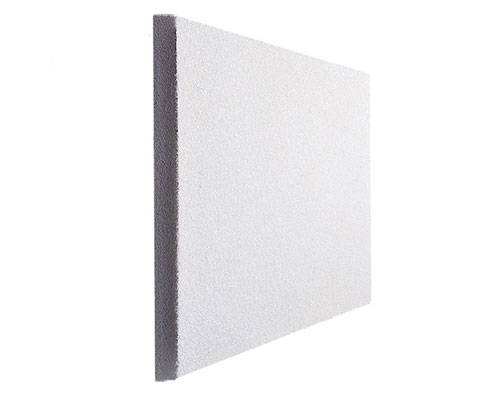The aluminum alloy foam ceramic filter was originally developed for the production of forged aluminum alloys in strict product applications.
Aluminum cans and lid materials, aluminum foil, aircraft extrusion materials, storage trays, forging materials and metal wires require extremely high cleanliness.
The first application in the foundry industry was high-quality aluminum castings for aerospace applications.
Since then, it has expanded to commercial casting and automotive applications.
Aluminum alloy foam ceramic filters have several key advantages that can improve the quality of high-quality aluminum castings.
Improved mechanical properties.
Reduce signs of dye penetration.
Reduce non-metallic X-ray evidence.
Reduce rework/scrap.
Improve processing performance.
Non-metals are used as nucleation sites to form hydrogen pores.
Therefore, the decrease in inclusion content will also be accompanied by a decrease in porosity caused by gas.
The filter cannot exclude hydrogen.
It only reduces the tendency to form holes.

The main benefit of using ceramic foam filters is that rework can be greatly reduced.
Eliminating defects in surface or subsurface properties can add considerable cost to the price of castings, provided that these defects do not occur in critical areas.
In addition, if mixing or other finishing techniques result in a loss of dimensional integrity, casting loss may occur.
Maintenance is not an effective means of competitive production of high-quality castings.
Another major advantage of ceramic foam filters
Non-metals can affect the finishing characteristics of machined castings. In the presence of non-metallic inclusions, the characteristic luster and luster of aluminum will disappear.
The Influence of Foam Ceramic Filter on the Mechanical Properties of Casting Test Rod
The test rod is made of alloy Almag (AA535) and 356-T6.
Almag is a high-magnesium alloy that can form reasonable strength without heat treatment.
However, the high magnesium content leads to the formation of scale during the casting process.
Although high strength is not a common requirement for Almag 35, pressure tightness is almost always a required attribute.
Filtration can effectively reduce inclusions and improve the pressure resistance of Almag 35.
The tensile strength of the filtered and unfiltered Almag 35 alloy is very different.
The use of ceramic foam filtration increases the achievable tensile strength by approximately 20%.
By using the filter, the influence of the aluminum alloy elongation percentage is significantly improved.
The improved mechanical properties of Almag 35 may allow more applications of the alloy.
Therefore, it can be reasonably concluded that the aluminum alloy foam ceramic filter is very effective in preventing non-metallic materials from entering the aluminum melt. Therefore, in terms of level and repeatability, the use of ceramic foam filters can obtain the best mechanical properties.

